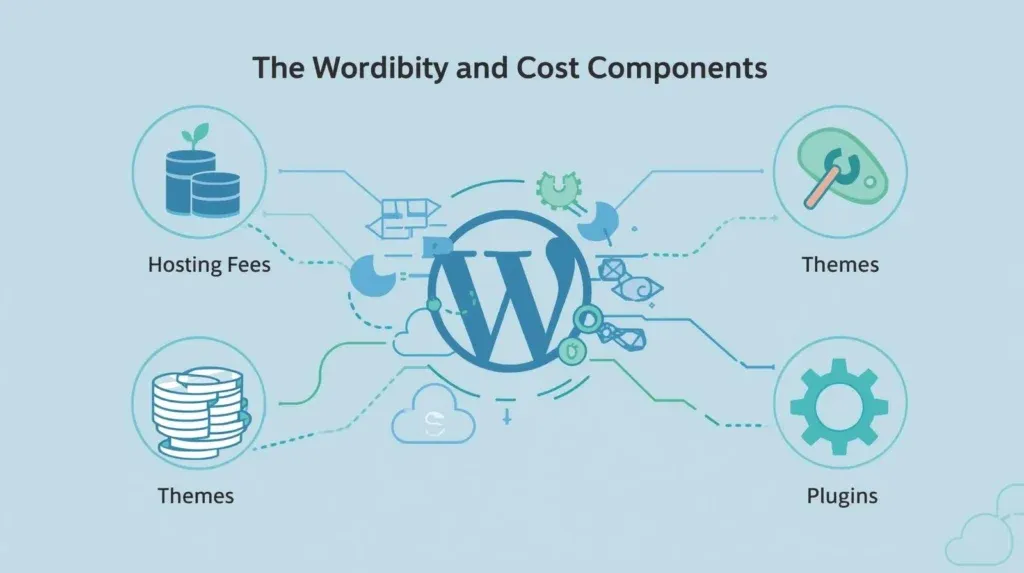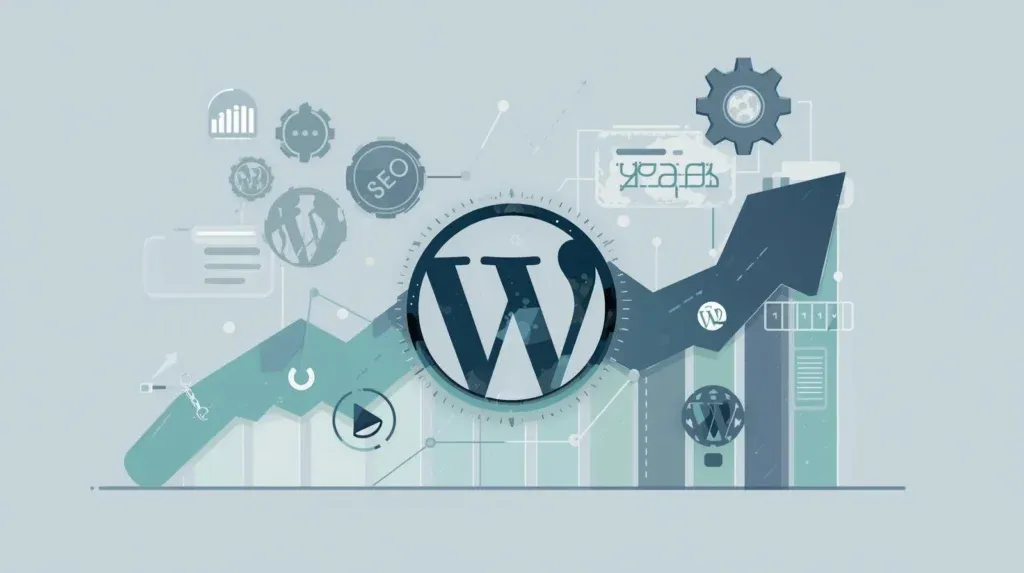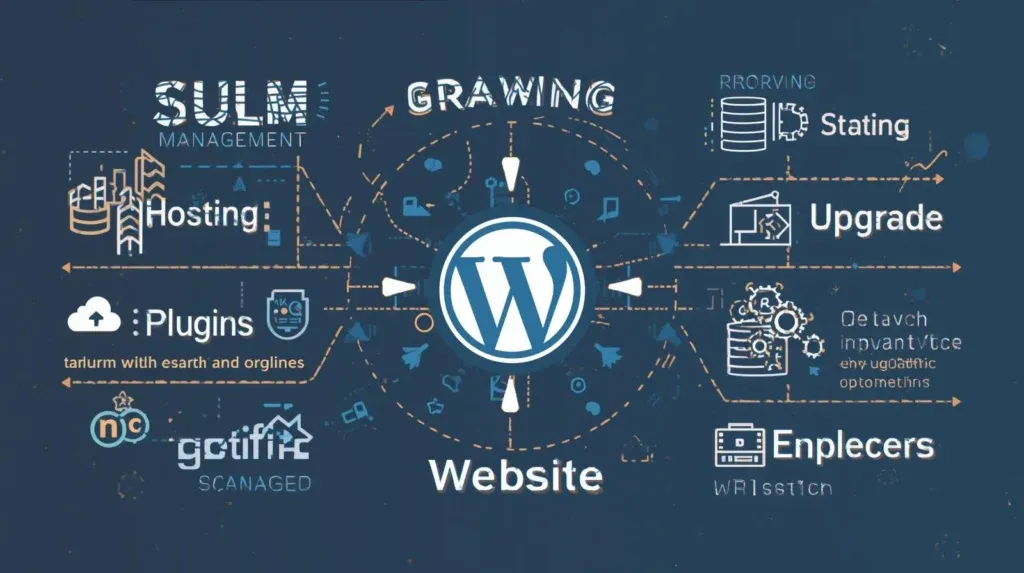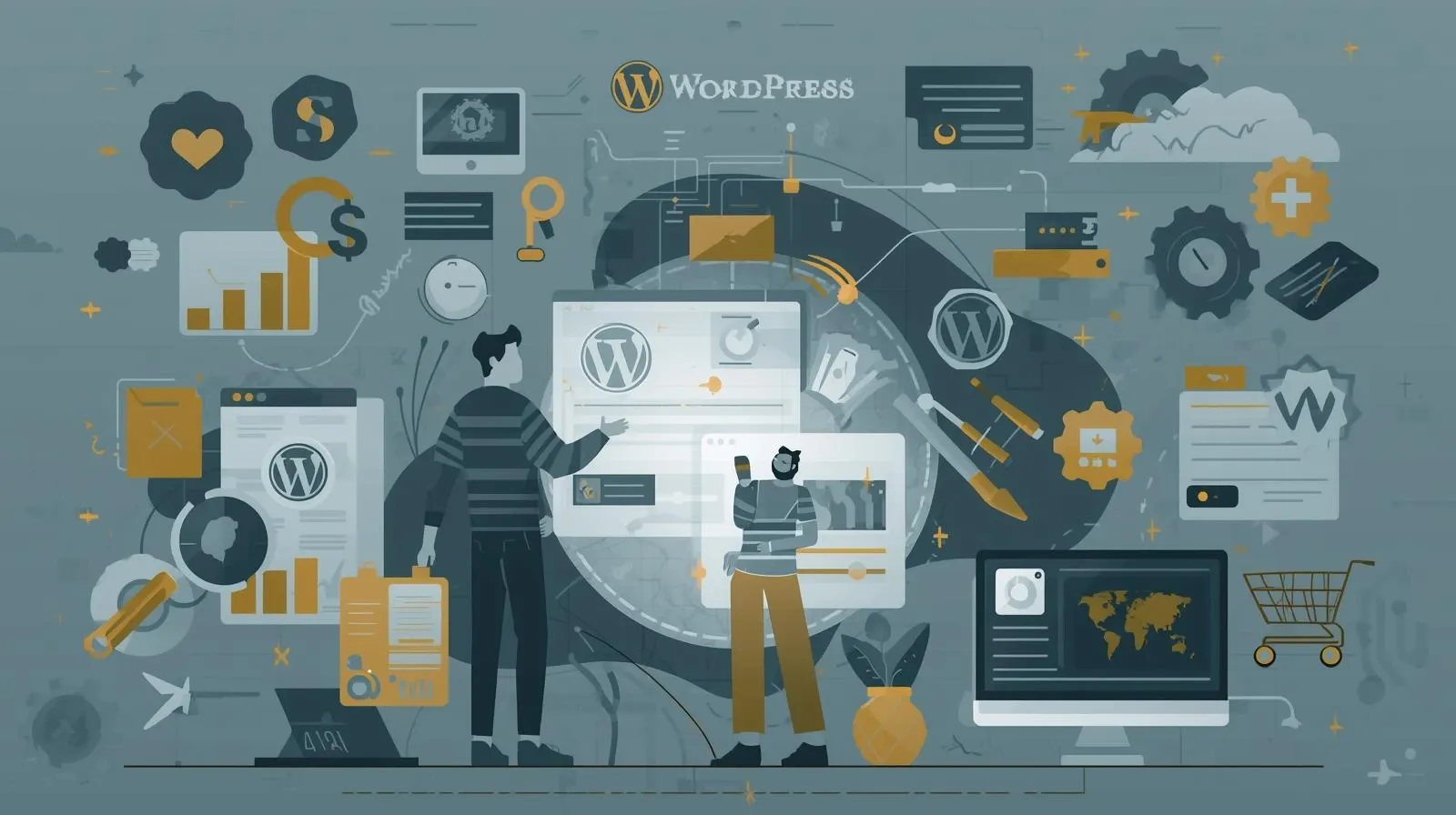When it comes to building a website, especially an e-commerce platform, two of the most popular options that often come to mind are Shopify and WordPress. Both platforms have their unique advantages and serve different needs. But how do you choose between the two? In this blog post, we will compare Shopify vs WordPress in-depth to help you make an informed decision. We will explore the features, benefits, and downsides of both platforms, so you can figure out whether Shopify or WordPress is the best choice for you.
Understanding Shopify and WordPress
Before diving into a detailed comparison, let’s first understand what Shopify and WordPress are.
What is Shopify?
Shopify is an all-in-one e-commerce platform designed to help you create and manage your online store. It is a hosted solution, meaning you don’t need to worry about purchasing hosting or maintaining software.

Shopify is ideal for entrepreneurs or businesses that want to focus on selling products without getting involved in technical aspects like server maintenance.
What is WordPress?
WordPress is a content management system (CMS) that powers over 40% of websites on the internet. It’s open-source, highly customizable, and works well for creating various types of websites, from blogs to full-scale e-commerce stores. WordPress requires you to purchase hosting and install software, but it offers a great deal of flexibility, making it an excellent choice for those who want full control over their site.
Now that we have an overview, let’s dive into the comparison between Shopify vs WordPress.
Shopify vs WordPress: A Detailed Comparison
1. Ease of Use
Shopify
Shopify is known for its ease of use. The platform is user-friendly and intuitive, making it simple to set up your store. It comes with built-in tools for inventory management, product listings, and payment processing. You don’t need to have technical skills to get started with Shopify, and it offers step-by-step guidance to help you through the setup process.
WordPress
WordPress, on the other hand, is a bit more complex. Although it is relatively easy to use for beginners, there is a learning curve. You will need to install WordPress on your hosting server and choose a theme.

Additionally, setting up an online store on WordPress requires the installation of an e-commerce plugin like WooCommerce, which adds additional steps to the process.
However, WordPress provides complete flexibility, allowing you to customize your website’s design and functionality as needed.
2. Pricing
Shopify
Shopify offers several pricing plans, ranging from $39 to $399 per month, depending on the features and tools you require. The basic plan covers most essential features, while higher-tier plans come with additional features like advanced reporting, lower transaction fees, and better support. Shopify’s pricing is all-inclusive, which means you don’t need to worry about hosting, security, or other additional costs.
WordPress
WordPress itself is free to use, but you will need to pay for hosting, themes, plugins, and a domain name. Hosting can cost anywhere from $3 to $30 per month, depending on the provider.

You may also need to purchase premium themes and plugins, which can add to your overall costs. However, the flexibility of WordPress allows you to control your budget and make decisions based on your needs.
3. Customization and Flexibility
Shopify
Shopify provides a limited range of themes and apps. While it is highly customizable in terms of adding products, managing sales, and organizing your store, it doesn’t offer as much flexibility as WordPress. If you’re looking to make more complex design changes, you might hit some limitations, especially without advanced technical skills.
WordPress
When it comes to customization, WordPress is the clear winner. The platform offers a vast range of themes, plugins, and tools that allow you to modify almost every aspect of your website. Whether you want to change the layout, add new features, or integrate third-party services, WordPress provides a high degree of flexibility.
With plugins like WooCommerce, WordPress can be transformed into a fully functional e-commerce store, allowing you to sell products, manage inventory, and accept payments with ease.
4. E-Commerce Features
Shopify
Shopify is specifically built for e-commerce. It comes with built-in features like product catalogs, payment gateways, shipping options, and tax calculations.

Shopify also has robust tools for managing inventory, processing orders, and analyzing sales data. Additionally, it integrates with numerous third-party apps to enhance your e-commerce store’s functionality.
WordPress
While WordPress itself is not designed solely for e-commerce, the addition of plugins like WooCommerce makes it a powerful e-commerce platform. WooCommerce allows you to sell products, manage inventory, and handle payments. However, you’ll need to rely on third-party plugins to handle additional features like SEO, shipping, and marketing automation.
If you’re comfortable with plugins and managing different integrations, WordPress can be just as effective as Shopify for e-commerce.
5. SEO and Marketing Tools
Shopify
Shopify comes with some built-in SEO tools that help optimize your site for search engines. The platform allows you to edit page titles, meta descriptions, and URLs, and it automatically generates sitemaps. Shopify also offers integrations with popular marketing tools, including email marketing, Google Ads, and social media platforms.
WordPress
WordPress offers much more control over SEO. It’s widely regarded as the best platform for SEO due to its flexibility and the availability of powerful plugins like Yoast SEO.

WordPress allows you to optimize every aspect of your site, from page titles to image alt texts. If SEO is a top priority for you, WordPress offers more tools to fine-tune your site’s visibility.
6. Security
Shopify
Shopify handles all security aspects for you. It comes with SSL certificates, secure payment gateways, and regular updates. As a hosted solution, Shopify ensures that your website is protected from threats, and they offer 24/7 monitoring to safeguard your store.
WordPress
WordPress is a self-hosted solution, meaning you are responsible for your website’s security. However, there are plenty of plugins and tools available to help secure your site.

You’ll need to keep your themes and plugins updated to avoid vulnerabilities. Additionally, you should consider installing a security plugin, such as Wordfence, to protect your website from attacks.
7. Customer Support
Shopify
Shopify provides 24/7 customer support through live chat, phone, and email. This is a significant advantage for users who may need assistance quickly. Shopify also has a comprehensive help center, including guides, tutorials, and community forums.
WordPress
WordPress has a large community of users and developers, so you can find a wealth of tutorials, forums, and guides. However, WordPress does not offer direct customer support like Shopify. If you need help, you may need to rely on third-party services or hire a developer to assist you.
8. Scalability
Shopify
Shopify is highly scalable, making it a great choice for businesses that plan to grow quickly. The platform can handle large inventories and high traffic, and it offers enterprise-level solutions for businesses that need advanced features and dedicated support.
WordPress
WordPress is also scalable, but it requires more management as your website grows. You may need to upgrade your hosting, install additional plugins, or optimize your site to handle more traffic.

While WordPress can handle large-scale e-commerce websites, it may require more technical knowledge and maintenance compared to Shopify.
Shopify or WordPress: Which One Should You Choose?
The decision between Shopify vs WordPress largely depends on your business needs, technical skills, and future goals.
- If you want a user-friendly, all-in-one platform to set up and manage your online store quickly, Shopify might be the better option for you. It’s designed specifically for e-commerce and comes with all the tools you need to run an online business.
- On the other hand, if you value flexibility, control over your website, and are comfortable with managing plugins and hosting, WordPress may be the ideal choice. It’s highly customizable and offers greater control over SEO and site design.
Shopify vs WordPress FAQ
1. Which platform is easier to use, Shopify or WordPress?
Shopify is generally easier to use, especially for beginners. It’s designed specifically for e-commerce and includes built-in features that make it easy to set up and manage your store. WordPress has a steeper learning curve, especially when setting up an online store.
2. Which is better for SEO, Shopify or WordPress?
WordPress is widely regarded as the better platform for SEO. With plugins like Yoast SEO, you have greater control over your site’s search engine optimization.
3. Can I migrate from Shopify to WordPress?
Yes, it is possible to migrate from Shopify to WordPress using tools and services designed for migration. However, the process can be time-consuming and may require technical expertise.
4. Which platform is more secure, Shopify or WordPress?
Shopify is more secure out of the box since it’s a hosted platform with built-in security features. WordPress, being self-hosted, requires you to manage your site’s security.
5. Is Shopify or WordPress better for a small business?
For a small business with limited technical knowledge, Shopify is often the better choice due to its ease of use and built-in e-commerce tools.
6. Can I build a blog with Shopify?
While Shopify allows you to add a blog, it’s not as robust as WordPress when it comes to blogging. WordPress is the superior platform for blogging.
7. Is WordPress free?
WordPress itself is free, but you will need to pay for hosting, domain registration, and potentially premium themes and plugins.
In conclusion, both Shopify and WordPress have their strengths and are suitable for different types of users. By assessing your specific needs and goals, you can determine which platform is the best fit for your online store.
If you need a Shopify or WordPress website developer contac-us

